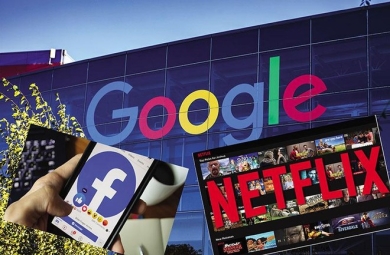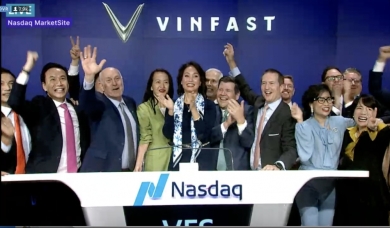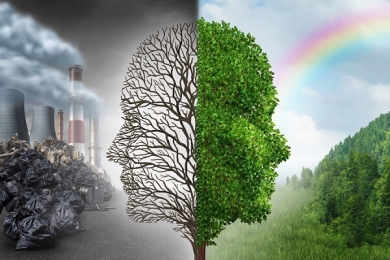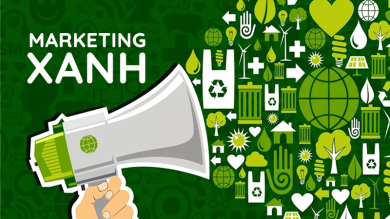As Xi travels through EU this week, automakers weigh whether to fight or team up with cheaper Chinese rivals

The car freighter BYD Explorer No. 1 brings 3,000 cars to Bremerhaven, Germany. Europe needs Chinese EVs if it is to meet its goal of banning combustion engines in 2035.
PARIS/LONDON/FRANKFURT -- Chinese President Xi Jinping arrived in Paris on Sunday for the first leg of a continental tour aimed at easing trade tensions with an increasingly wary Europe.
Accompanied by a business delegation top heavy with the electric vehicle industry -- Envision Group, SAIC Motor and Xpeng Motors were just a few brand names -- it was as much a shopping trip for China as a speed-dating opportunity for European auto companies.
While alarmed by growing electric vehicle imports from China, which produced about 60% of the world's EVs in 2022, Europe is welcoming investment into its industry. "We want to welcome more Chinese investors to France," President Emmanuel Macron said during Monday's state visit.
Earlier that day, France's economy minister had announced an ambitious target to increase French EV sales fourfold to 800,000 cars by 2027, a sign that the European industry is waking up to the burgeoning Chinese competition.
The move underlines how the electrification of cars has drastically altered the balance of power in the global auto industry. For decades China was the only major car market dominated by overseas brands, mainly from the European Union. But almost overnight the conversation has shifted from whether China's laggard auto industry can survive, to what European automakers are doing about the Chinese EV threat.

Xi Jinping and Emmanuel Macron shake hands after a joint statement at the Elysee Palace in Paris on May 6. France is one of the EU's keenest advocates for imposing tariffs on Chinese vehicles.
With the EU's target for a ban on combustion engines looming in 2035, China has a massive lead in affordable EVs, with plans to ramp up exports and overseas production.
As many consumers transition to EVs, European carmakers are worried about their market share at home. While Chinese brands accounted for a mere 7.9% of EU battery-electric vehicle (BEV) sales in 2023, according to the Europe-based nongovernmental policy group Transport & Environment, this was up from 0.4% in 2019. The analysis projected Chinese makers' market share could grow to 20% by 2027.
Chinese brand EVs in Europe are on average 24% cheaper than European brands, according to JATO Dynamics, an auto industry data company.
"When we're talking about these mass market segments, it's mainly about price ... and when you look at [Chinese brands'] price positioning compared to European rivals, there is always an advantage," said Felipe Munoz, senior analyst at JATO Dynamics.

Analysts say that the EU's climate targets present a dilemma: Given China's head start, it is difficult to imagine Europe meeting its combustion engine target without relying on substantial imports of Chinese EVs.
"I don't think in Europe there's the necessary capital at the moment to really do this without China, and on top of that ... in terms of the technology we're also behind China," Gregor Sebastian, a senior analyst at Rhodium Group, told Nikkei Asia.
But Europe remains ambivalent about a potential influx of Chinese EVs. The European Commission has launched an investigation into hidden subsidies in the Chinese EV sector that could result in preliminary duties being imposed on EVs in May. Permanent tariffs that need the support of a majority of member states could follow in November. Xi's visit aims to defray protectionism in European policy circles.
German Chancellor Olaf Scholz, meanwhile, visited Beijing last month, accompanied by several German auto executives, to ease business and trade relations and call for a fair competition in softer tones than Brussels.

A Mercedes EV gets its battery charged at Perpignan Charging Station in Rue du Castillet on Sept. 6, 2023, in Perpignan, France.
"It's not merely about losing market share, but thousands of jobs could be lost in the years to come," Marc Julienne, director of the Center for Asian Studies at the French Institute of International Relations, told Nikkei Asia. He explained that unfair competition in EVs could have a society-wide impact in Europe, which is often "underestimated." In the EU, the automotive industry accounts for 13 million jobs, according to the European Automobile Manufacturers' Association.
The industry is sharply divided, with some brands such as Germany's Volkswagen and BMW welcoming Chinese investment and imports, while other companies are wary.
"If someone wants to introduce Chinese competition," Carlos Tavares, CEO of Franco-Italian car giant Stellantis, warned in April, "they would be responsible for the unpopular decisions that might have to be taken." With sales volumes and market share likely to be lost, "we might not need so many plants as we have now," he said in reference to the Italian government's moves to attract Chinese EV investment, according to Reuters.
Turning the tables
While shiploads of EVs from China have captured the European public's attention, the real inroads in Europe will be made once China invests in local plants and local partners.
The previous generation of Asian carmakers from Japan and Korea entered the European market decades ago only to find they could not grow sales significantly until they invested in the continent by creating manufacturing bases and introducing tailored designs.

In the same way, Chinese carmakers "know that if they want to really have a bigger role in Europe, they also need to produce locally," Munoz said.
According to Rhodium Group, Europe was again the biggest destination for Chinese EV-related FDI in 2023, welcoming $7.6 billion, following a bumper year of $11.8 billion in 2022, when CATL invested $7.3 billion for its gigafactory in Hungary.
"BYD, MG and others would only become fearsome for European manufacturers if they had an industrial presence in Europe," said Bernard Jullien, an economist specializing in the automotive industry, "even more so a design presence" to provide cars "fitted to European consumers."
For decades, European carmakers were investing in China by partnering with local companies to access the market. Now the tide is turning as Chinese EV makers seek to make EVs in Europe for European customers. "The student has overcome the teacher," Munoz said. Chinese cars are now "at the same level or even more in terms of quality, in terms of design, in terms of appeal, and in price."

This ship, BYD Explorer No. 1, is moored at the automotive terminal at the port of Bremerhaven, Germany, on Feb. 26. The vessel delivered about 3,000 BYD vehicles with its maiden call at Germany’s most important port for cars.
One example is Shanghai-based SAIC, China's largest state-owned carmaker that until recently had been riding the coattails of a partnership established with VW in 1984. Now it is looking to move into Europe and is selecting a site for a factory, Zhao Aimin, vice president of SAIC Motor International, told Chinese media in January.
One of Xi's destinations on his European trip will be Hungary, where BYD, which in the fourth quarter of 2023 became the world's top-selling EV maker, surpassing Tesla, is building a factory in the town of Szeged. It already has a site making electric buses in the country and is considering another factory as well as a research and development site in Western Europe.
Hungarian media also reported that an announcement would be made later during Xi's visit about an investment by Great Wall Motor, a Hebei-based, privately owned Chinese automaker.
Chery, an Anhui-based carmaker owned by the local government, recently announced its first plant in Europe, in Spain, after signing a joint venture deal with Spain's Ebro-EV Motors. Manufacturing will begin later this year in a former Nissan factory in Catalonia. Both carmakers will produce their own vehicles at the site.

Chery is also in talks for a second factory, in Italy, according to media reports. Dongfeng Motor, the state-owned automaker headquartered in Wuhan, is already involved with international carmakers through joint ventures, with Stellantis, Renault, and Nissan.
Looking ahead, Sebastian from Rhodium Group predicts, "There's probably going to be another few announcements [of Chinese investments] on the EV assembly side, and then upstream we've also seen an uptake."
Better together?
To rapidly develop their own EV value chain and catch up with Chinese technology, European carmakers are increasingly banding together, with each other or with Chinese partners. Partnerships reduce cost, particularly in battery production and upstream supply chains, where Europe lags.
France's first battery "gigafactory" was inaugurated in May 2023 by ACC (Automotive Cells Company), a joint venture between TotalEnergies, Stellantis and Mercedes-Benz to supply their EV plants. The group has plans for three gigafactories in Italy, Germany and France. Paris hopes to turn Dunkirk, where several factories and related infrastructure will be located, into the EV heartland of Europe.
Renault is betting on many players to secure its EV battery supply chain, from French startups to AESC, which is majority owned by China's Envision Group. In March, the French carmaker announced a joint venture with Volvo to build electric vans. Renault CEO Luca de Meo said the move will "root Renault back in France," through "alliances with European champions" like Volvo, which is, ironically, owned by China's Geely.

Renault Group’s Sandouville plant, near Le Havre, France, in 2026 will start making electric Flex E Vans under a joint venture. Geely-owned Volvo owns 45% of Flexis, Renault's joint venture partner. (Photo by Mailys Pene-Lassus)
Stellantis is also eager to absorb and benefit from rivals' strengths. The Franco-Italian automaker became a shareholder of Chinese brand Leapmotor in 2023, investing 1.4 billion euros to purchase 21% equity.
Stellantis will majority own a joint venture with Leapmotor, Leapmotor International, which will have exclusive rights to export, sell and build Leapmotor new energy vehicles outside China. Sales are planned to start this year, with reports that production will take place at a Stellantis site in Poland.
"We are actively addressing a white space in our business model and can now benefit from Leapmotor's competitiveness both in China and abroad," Stellantis CEO Tavares said in the company's annual report.
Meanwhile, the German auto industry has strong carmaking ties in China and is relatively supportive of Chinese EV expansion.

Robotic arms work at an intelligent factory of Leapmotor on April 8 in Jinhua, Zhejiang province, China. Stellantis has invested 1.5 billion euros in Leapmotor.
The German multinational car parts company Continental told Nikkei Asia it sees "potential for growth with Chinese manufacturers outside of China."
"If [Chinese companies] plan to expand in other markets, we are ready to support them -- with our technologies and our global production facilities," a spokesperson said.
"Economic cooperation with China secures prosperity and employment in Germany and Europe today and in the future," while global issues like climate change "can only be mastered together with China," the spokesperson added.
Another German parts supplier, ZF, told Nikkei Asia it also values Chinese collaboration. "In China, ZF is growing with the Chinese manufacturers and is participating in the country's very dynamic and innovation-driven automotive market," a spokesperson said.
European carmakers' reactions to potential collaborations with Chinese brands seem to differ depending on how much the Chinese proposition overlaps with each maker's brand positioning.
German manufacturers, for example, are relying on their "premium brand equity," via big names like BMW, Mercedes, Audi and Porsche, as a "moat to protect them from cheaper and more homogenous new brand entries," according to Matthias Schmidt, European Automotive Market Analyst of Schmidt Automotive Research.
Schmidt said Chinese premium brands are "having little success" in Europe, a sign that this approach is working so far.
A Volkswagen ID.5 electric car sits in a showroom in Reze, near Nantes, France, on Nov. 13, 2023. Volkswagen is fighting to keep its 14.5% market share in China, where it used to control 20% of the market.
In Germany, vehicles made by Chinese manufacturers accounted for just 0.8% of new cars registered in March, according to the KBA, Germany's Motor Transport Authority.
An analysis from Transport & Environment shows around 20% of BEVs sold in the EU last year were made in China, but over half of those were made by Western brands using China as a production and export base. The same analysis notes that Chinese brands' market share is rapidly increasing, however.
A BMW spokesperson told Nikkei Asia that nearly one in every five cars BMW sold in the EU last year was the BMW iX3, made in Shenyang. "We are therefore a driver of this trend (of producing EVs in China) and will continue to expand it through our Mini production in our Chinese joint venture," they said.

Morris Garage's MG4 Electric draws some onlookers at the Electric Vehicle Fair, in Plaza de Colon, on Sept. 15, 2022, in Madrid, Spain. Many European drivers think MG is British-owned, which helps the brand build sales.
The fourth best-selling battery-electric vehicle in Europe in 2023 was the MG4 by MG, a brand with historic links to Britain but now owned by China's SAIC, sales of which grew over 800% compared to 2022. This was "a remarkable achievement," according to Munoz, though he reckons this relied on many consumers not being aware of the maker's Chinese link. "They think it's British, so this helps a lot to gain traction," Munoz said.
Chinese brands are still "minor players" in the European market with less than 10% of the market, Munoz said. "They are growing, they're gaining traction very fast, but it will take time," he said.
Balancing act
While European politicians grow concerned about overreliance on China, governments are handing out generous grants and loans from the EU's pockets to onshore EV production and supply chains in a simultaneous effort to accelerate the green transition.
The 1.3 billion euro investment by AESC, which is 80% owned by China's Envision Group, to build a gigafactory in Douai, France, for example, is 34% direct and indirect loans from the European Investment Bank.
Experts say Europe's approach to reducing dependence on China, or "de-risking," slightly differs from that of the U.S., where Chinese investment is now being harshly scrutinized. Europe does not have a "clear cut answer" on whether onshoring production by bringing in a Chinese company counts as "properly de-risked," Sebastian said.
"It's about decarbonizing, but it's also about [remaining] competitive," which would be "really tricky" without Chinese players now, Sebastian added.
EVs have been at the core of EU-China tensions in the past months, culminating with Brussels investigating unfair subsidies to Chinese companies.
The perceived threat to EV manufacturers in Europe has prompted the European Commission to investigate Chinese subsidies in the EV sector, looking at BYD, Geely and SAIC in particular.
A screen shows Xi Jinping and Emmanuel Macron at the Beijing International Automotive Exhibition in Beijing on April 25. Macron would like to welcome more Chinese investors to France.
European Commission President Ursula von der Leyen came to Paris on Monday to meet Xi and openly called out the "flooding" of the European market by "Chinese subsidized products." She warned the Chinese president, "We stand ready to make full use of our trade defense."
"As we have shown, we will defend our companies, we will defend our economies, we will never hesitate to do so," Von der Leyen said Monday. "Europe cannot accept market distorting practices that could lead to de-industrialization here at home."
France and Italy are the keenest advocates for tariffs on Chinese vehicles due to their limited sales in China, analysts say. "Their lack of exposure is one reason they can be so vocal on this topic," Schmidt, the auto market analyst, said.
In contrast, German manufacturers, some of the biggest sellers in China, are fearful of Beijing possibly moving to "hinder their all-important Chinese market performance," Schmidt said.
Volkswagen Group is fighting to keep its nearly 15% market share in China, where it previously held almost 20%. One of the earliest Western entrants to China, Volkswagen had the best-selling car in China from 2008 until a BYD model unseated it last year.
"We take Chinese suppliers seriously. Just as we have done with manufacturers from Japan and Korea," a spokesman for VW told Nikkei Asia. The company, however, questions whether tariffs are the "right instrument to control the creation or retention of added value in Europe."
"We are closely monitoring the growing competition from China, but at the same time we are confidently accepting this international competition in order to drive forward our transformation," he added.
Analysts are united in the belief that no EU duty will be "high enough" to counteract the comparatively low production costs and prices of Chinese EVs.
BYD's Seal U, for example, is an all-electric SUV for Europe that launched in February. For each model sold in Europe BYD makes around 13,000 euros more than it would in China thanks to an "EU price premium," according to an analysis by Rhodium Group.
A BYD Seal U goes on display a day ahead of the official opening of the 2023 Munich Auto Show in Germany, on Sept. 4, 2023. If BYD is to become a strong competitor in Europe, it will need to build cars on the continent, analysts say.
To counteract the EU profit premium and make Chinese EV exports less commercially attractive, "duties of around 45% or even 55%" would be needed, according to the Rhodium Group analysis.
But duties of 15% to 30% could "wipe out the business model for foreign players like BMW or Tesla" which use China as an export base. The additional duties would wipe out the EU premiums they charge for vehicles made in China.
While the primary intention of the probe is to slow down imports, onshoring manufacturing to the EU would be considered a "positive side product," Sebastian, the Rhodium Group analyst, said.
Experts agree that, even with EU government help, European makers have their work cut out. "We need to prepare for a cut-throat war on affordable EVs," Jullien, the economist, said.
However, Europe "doesn't start out as the underdog," Jullien added. Cheap prices remain the main asset for Chinese brands in Europe, but this might not be enough to seduce a "very demanding market."
"There is a cultural barrier to entry" for Chinese cars, whereas European makers have deep knowledge of their consumers, as well as the scientific resources to catch up in battery tech, Jullien said, adding that "this barrier to entry is higher for small, popular cars."
But as European carmakers focus on high-end models, the doors are being left open for Chinese carmakers to propose highly competitive affordable cars, the market for which could become the main battleground for manufacturers when the EU ban on combustion engines hits in 2035.
Additional reporting by Grace Li from Nikkei












